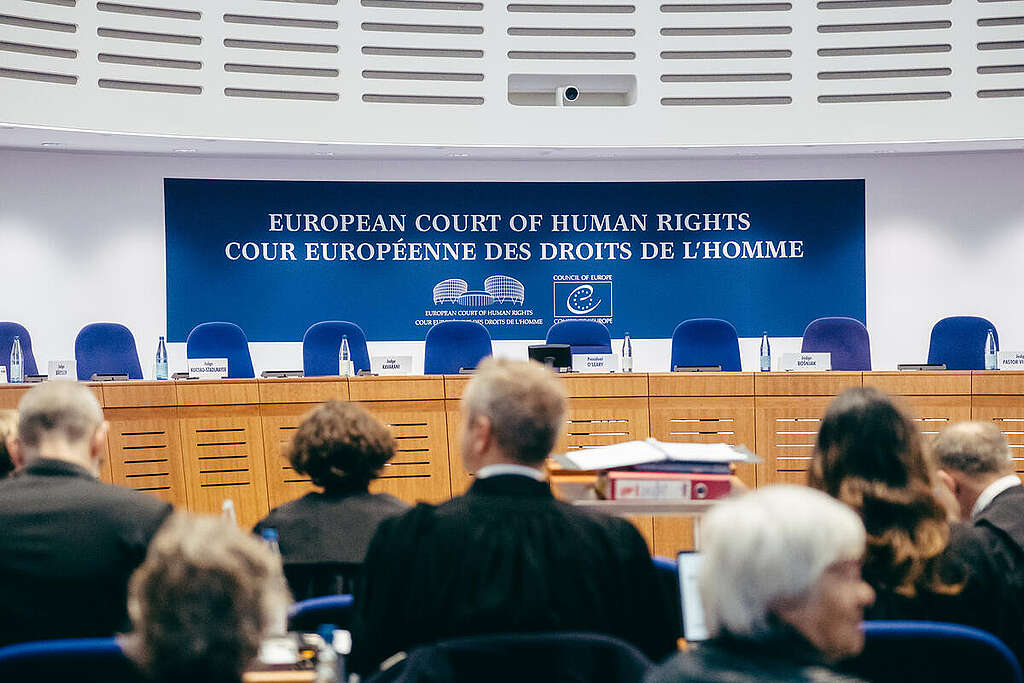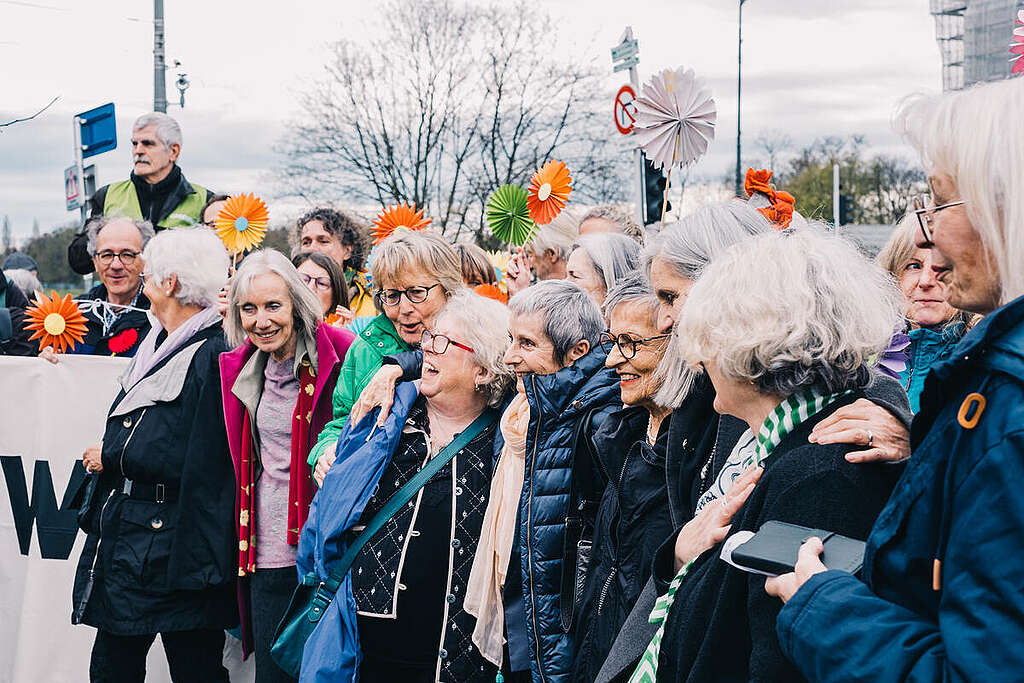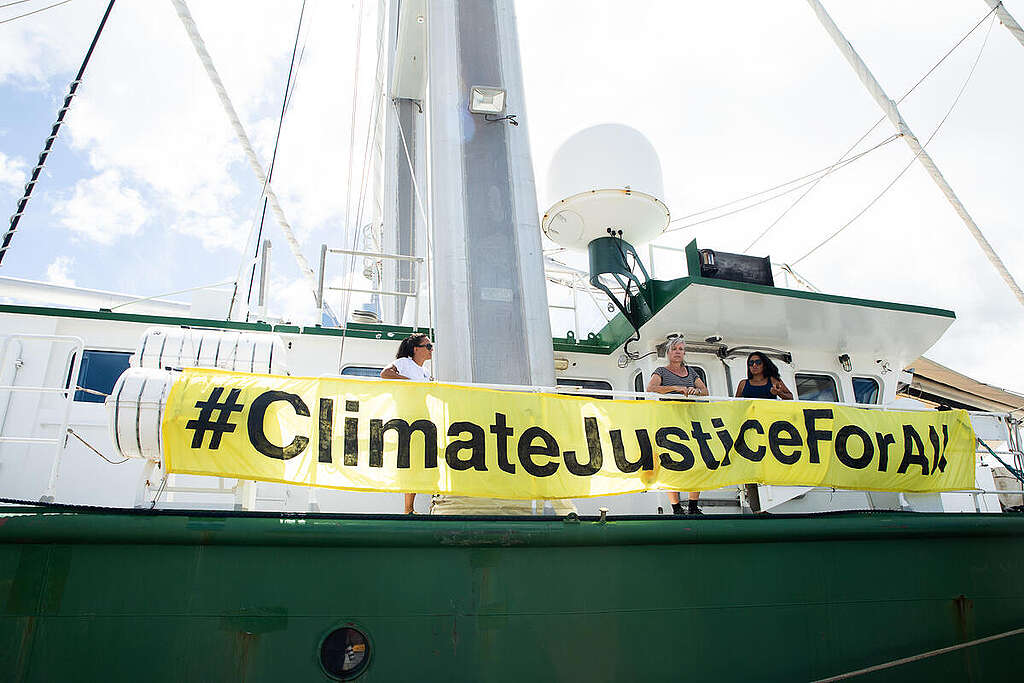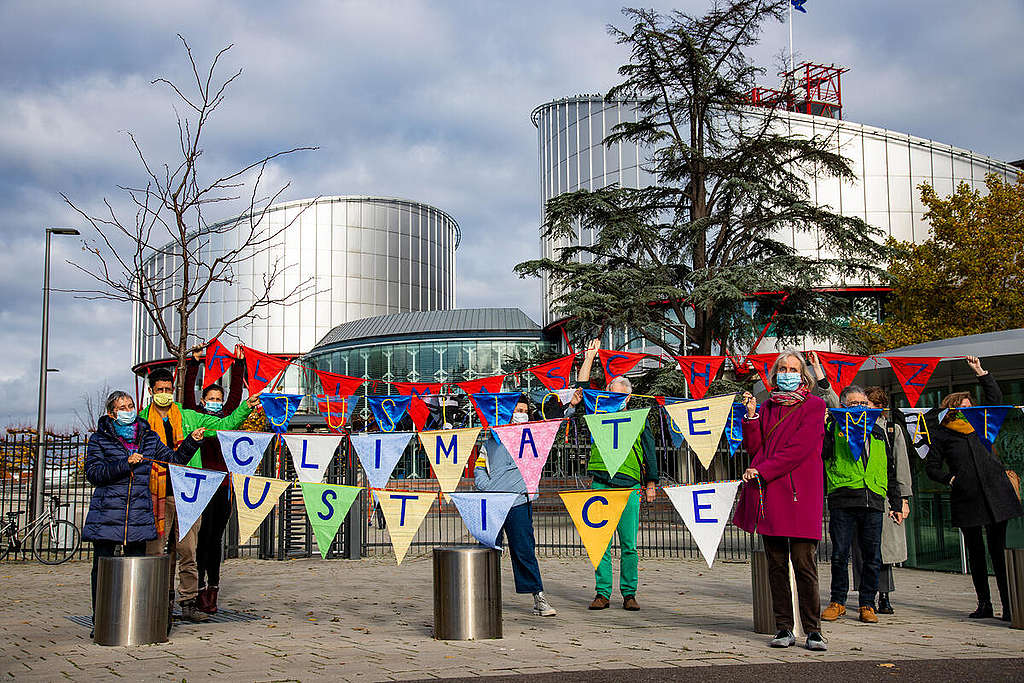2024 is the year when many climate justice cases at the courts will be decided. The surge of climate cases in front of international courts and tribunals is only increasing, and decisions taken this year will be pivotal. More and more people and communities are seeking legally binding action from governments and companies that are responsible for the destructive impacts of the climate crisis on health, biodiversity, the environment and human rights.
Three landmark cases are currently before the European Court of Human Rights (ECtHR) in Strasbourg, France: Klimaseniorinnen v Switzerland, Carême v. France and Portuguese Youth vs 32 European States. These are a taste of climate justice liability cases emerging across the globe that will help to spell out what States’ legal obligations are, and compel them to act on the climate crisis.
“A positive decision in any of these three cases would mark a pivotal moment in recognising States’ binding obligations to act on the climate crisis to protect human rights. The decisions will impact European courts and could also influence the upcoming advisory opinions by international courts. Together they will help define international law and policy on climate change for decades to come.” Louise Fournier, Legal Counsel at Greenpeace International, part of the Klimaseniorinnen legal team.
A herstoric ruling in the case Verein KlimaSeniorinnen Schweiz and Others v. Switzerland is awaited
Senior women in Switzerland formed an association – the KlimaSeniorinnen – to take their state to court for doing too little to prevent the impact of the climate crisis on their human rights. The KlimaSeniorinnen say Switzerland must do its share to keep global heating below 1.5ºC. After exhausting all national options they took their case to the European Court of Human Rights arguing that Switzerland is pursuing an inadequate climate policy, and so violating their human rights. A 17-Judge Grand Chamber heard their case for the protection of their human rights in the climate crisis on 29 March 2023 and is set to deliver its ruling on 9 April 2024.
 The 29th March 2023 has the potential to go down in history as a milestone in the global fight against the ever-more imminent climate crisis. © Greenpeace / Shervine Nafissi
The 29th March 2023 has the potential to go down in history as a milestone in the global fight against the ever-more imminent climate crisis. © Greenpeace / Shervine NafissiThe KlimaSeniorinnen case is the first climate change case the ECtHR has heard!
The Court will determine if States have duties to mitigate the climate crisis to safeguard human rights. The Court’s rulings are legally binding, with a massive impact on the potential to protect present and future generations from further climate destruction.
 Almost a year ago, the KlimaSeniorinnen filed a complaint with the ECtHR. Their aim: they no longer wanted to accept Switzerland’s inadequate climate policy and argued that it violated their fundamental rights. This is the first time that the Strasbourg court has dealt with a climate case. © Greenpeace / Shervine Nafissi
Almost a year ago, the KlimaSeniorinnen filed a complaint with the ECtHR. Their aim: they no longer wanted to accept Switzerland’s inadequate climate policy and argued that it violated their fundamental rights. This is the first time that the Strasbourg court has dealt with a climate case. © Greenpeace / Shervine NafissiThe decision by the Court will ultimately be a powerful legal precedent establishing States’ human rights obligations in the context of the climate crisis. A victory for the Swiss Senior Women would not only be an important victory for older women in Switzerland, but a victory for all generations beyond Europe. Switzerland and all 46 member states of the Council of Europe would have to review and, if necessary, strengthen their climate policy based on the principles developed by the Court to safeguard human rights. This would benefit everyone – young and old.
Carême v. France
The case against France was brought by Damien Carême, a former mayor of Grande-Synthe, a suburb of Dunkirk in northern France, who argued that the French Government failed to meet its obligation to protect his right to life and right to family and private life by taking insufficient steps to meet France’s emissions reductions targets. The Grand Chamber held a public hearing in this case on the same day as the KlimaSeniorinnen’s case, making it the second one to be heard by the Court.
 Crew members of the Greenpeace Flagship Rainbow warrior put up a banner that reads “Climate Justice for All” in Tacloban, Leyte. The Greenpeace ship, Rainbow Warrior, returns to the Philippine seas after four years to join climate-impacted communities in their demand for climate reparations from the world’s biggest oil and gas companies. © Geric Cruz / Greenpeace
Crew members of the Greenpeace Flagship Rainbow warrior put up a banner that reads “Climate Justice for All” in Tacloban, Leyte. The Greenpeace ship, Rainbow Warrior, returns to the Philippine seas after four years to join climate-impacted communities in their demand for climate reparations from the world’s biggest oil and gas companies. © Geric Cruz / GreenpeaceA ruling in the case Duarte Agostinho and Others v. Portugal and 31 Other States
After witnessing devastating forest fires and experiencing ever-worsening heatwaves, six Portuguese young people decided to act. On 3 September 2020, they launched an unprecedented case against over 30 European countries in the ECtHR. They asked the Court to legally compel countries to ramp up their emission reduction efforts in line with holding global heating below 1.5°C.
The case of the ‘youth-Applicants’ is simple: time is rapidly running out to safeguard their futures. Governments have a legal duty to take far more ambitious and urgent action to slash greenhouse gas emissions and protect their human rights from the worst impacts of the climate crisis, such as the forest fires and heatwaves that brought them here.
Where to next?
Once the European Court of Human Rights rules on these first three cases, it is expected to begin ruling on other climate cases pending before it, including that of the Youth against Norway. National courts in Europe are also awaiting this guidance to decide on their pending climate cases. These lawsuits are brought by a diverse coalition of changemakers, who assert that governments must take more ambitious climate action, in line with the scientific consensus to keep global heating below 1.5°C.
Beyond Europe, cases are being heard by the world’s highest international courts and tribunals: from advisory opinion sought by Pacific Youth at the International Court of Justice (ICJ), to the International Tribunal of the Law of the Sea (ITLOS) and historic hearings at the Inter-American Court of Human Rights (IACtHR) where community representatives and Greenpeace will take part.
Whichever way the climate cases at the ECtHR are decided on 9 April, the journey itself to Europe’s highest court is a victory. It shows across the world that the climate movement is inching closer every day to holding governments and corporations accountable for the impact of their actions on present and future generations. Our future depends on it!

More than 2.500 senior went to one of Europe’s highest court to demand Climate Justice
Safina Okumu is the Global Communications lead for the Climate Justice and Liability campaign at Greenpeace International.

 7 months ago
58
7 months ago
58


